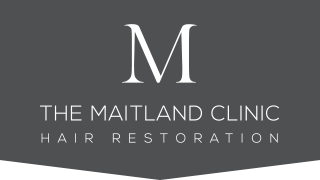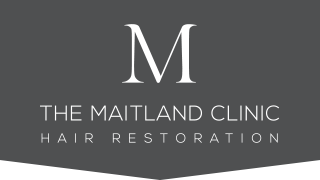Hair loss prevention tips
18th June 2024

Genetics often play a major role in hair loss, making it inevitable for some people. However, numerous other factors such as lifestyle, nutrition, and overall health can also contribute to hair thinning and loss.
There are a range of hair loss prevention strategies that may help to maintain healthy, strong hair and reduce the chances of thinning hair. In this blog, we’ll explore the different causes of hair loss and look at some effective hair loss prevention techniques.
Understanding hair loss
It’s normal for all of us to experience hair shedding to some degree. According to the NHS, we can lose between 50 and 100 hairs daily without even noticing. Our hair sheds as part of a healthy hair growth cycle.
However, sometimes, hair may shed more than normal, or new hair may not grow back. This may be a sign that some kind of hair loss is happening. Hair loss, or alopecia, can be temporary or chronic, and may occur for several reasons, including:
- Genetics: Hereditary hair loss, known as androgenetic alopecia, is the most common form and affects both men and women.
- Hormonal changes: Changes or imbalances in hormones, for example, being pregnant, going through the menopause, or having a thyroid condition, can lead to hair thinning.
- Medical conditions: Chronic illnesses, autoimmune conditions, or infections can lead to hair and scalp disorders such as alopecia areata or scalp infections.
- Medications: Treatments for cancer, arthritis, depression, and heart problems often list hair loss as a side effect.
- Stress: Experiencing high stress levels or trauma can sometimes lead to thinning hair.
- Lifestyle: Poor diet and unhealthy habits like smoking can contribute to hair loss.
- Hair treatment: Certain hairstyles may pull on the hair and scalp, causing damage. Hair treatments, such as using heat or chemicals, may also contribute to hair loss.
Identifying the underlying cause of hair loss is crucial for selecting the most effective hair loss prevention and treatment strategies.
Hair loss prevention techniques
It’s important to note that if you are genetically predisposed, it’s likely you will always be battling hair loss. Some non-surgical treatments can help to slow the rate of hair loss for many years, and surgical hair transplants may help to offer a long-term hair loss solution. If you’re noticing some changes to your hair, contacting a specialist as soon as possible is the best way to get an early diagnosis and start effective treatments.
While hair loss can’t always be avoided, in some people, certain lifestyle changes may help to minimise or prevent hair shedding. Dr Ball recommends some key hair loss prevention tips:
Diet and lifestyle
“A balanced diet that provides adequate protein, iron, and other essential nutrients is crucial for hair health. There is evidence to show that nutrient deficiencies can contribute to hair loss and thinning. It’s important to get guidance from a nutrition professional to ensure proper diagnosis and management of any deficiencies.”
“Avoiding habits such as smoking can also improve hair health. Evidence shows that smoking can lead to hair loss by weakening hair follicles.”
Stress
“Shock, trauma, or stress can sometimes trigger excessive hair shedding, particularly telogen effluvium, by disrupting the normal hair growth cycle. Managing stress, getting enough sleep, and incorporating relaxation techniques into daily life can be helpful.”
“Stress can really impact our health. If you’re finding it hard to manage stress or trauma, it’s really important to seek health from a mental health professional. They will be able to help you work through underlying concerns and implement management strategies most suitable for you.”
Hair treatment
“Caring for your hair is really important. Excessive pulling, twisting, or tugging of hair, including with tight hairstyles, can lead to traction alopecia. Even aggressive brushing can weaken hair follicles, so make sure to be gentle when styling.”
“It’s also important to avoid excessive heat styling or chemical treatments such as relaxers, perms, or dyes, as these can damage the hair and lead to hair loss.”
“Try to also establish a good routine that involves regularly washing your hair. This routine and the most suitable products to use will vary depending on your unique hair type and any conditions. If you have hair or scalp concerns, it’s a good idea to have a consultation with a dermatologist or trichologist to establish the best hair treatments for you.”
Medical conditions
“Medical conditions such as thyroid disorders or autoimmune diseases may contribute to hair loss. Getting timely treatment for any underlying medical conditions could help to improve any symptoms of hair loss as well as your overall health.”
Hair loss treatments
If you’ve started to notice you’re already experiencing some hair loss, there are a range of treatments which may be able to slow down the progression of hair loss, including:
If non-surgical treatments alone are not sufficient, you may be a candidate for a hair transplant.
Every individual is different, so we conduct an extensive consultation with each person to understand and analyse their scalp and hair. We also have the Fagron TrichoTest™ available, which is a simple genetic test that can help to identify the right hair loss treatments for you.
Getting a diagnosis and starting treatment as early as possible can allow for the correction of reversible factors (such as vitamin deficiencies and scalp disorders), helping to significantly improve overall outcomes.
A note on hair loss products
Some hair products can be especially helpful in improving hair loss, but it does depend on your circumstances. Products are usually best aimed at treating specific conditions. For instance, certain shampoos (containing ingredients like ketoconazole or piroctone olamine) can help to remove scale or serum build-up, which can help to treat very common scalp concerns such as dandruff, folliculitis, and seborrhoeic dermatitis. Creating a healthy scalp by tackling these concerns can help to encourage good hair growth.
Topical hair loss products (such as medicated foams or serums) also work best on a clean, healthy scalp, so treatments that improve scalp health can be helpful and improve the absorption of topical products.
However, shampoos and hair loss products may not work for your specific condition. It’s best to have a consultation with a trichologist before starting any treatments.
Some supplements also claim to improve hair growth or prevent hair loss. However, it should be recognised that supplements are usually only helpful if a specific deficiency has been identified. Supplements claiming to boost hair growth generally tend to lack robust scientific evidence. A 2019 study reviewed 125 scientific articles on vitamins for hair loss and found insufficient data to recommend many popular vitamins, including biotin, for hair growth.
At The Maitland Clinic, we would always recommend having a hair loss consultation before starting any treatments. This helps to identify the right treatments for you and ensure you get the most effective treatments as early as possible.
Hair loss prevention and treatments at The Maitland Clinic
Whether you’re looking for hair loss prevention strategies or are ready to invest in early hair loss treatments, we’re here to help.
Using only the most advanced and reliable hair loss treatments, and following the latest evidence in the industry, we are committed to bringing you the safest and most effective hair loss solutions for your unique needs.
To learn more about how to prevent hair loss or explore our range of treatments, get in touch with us today by completing our enquiry form or calling us on 02392 706122.










